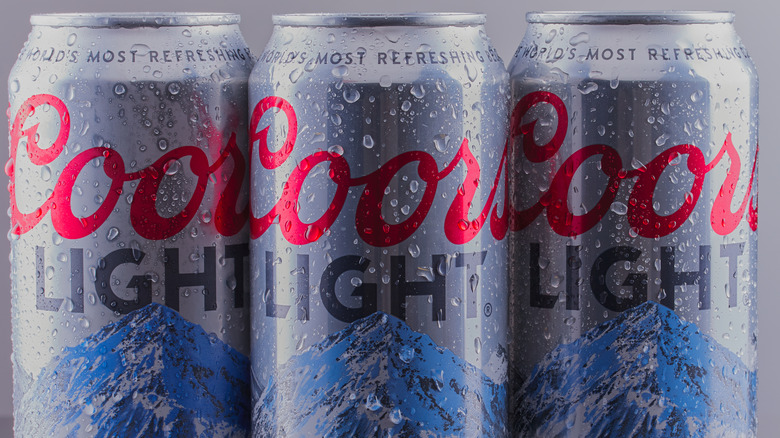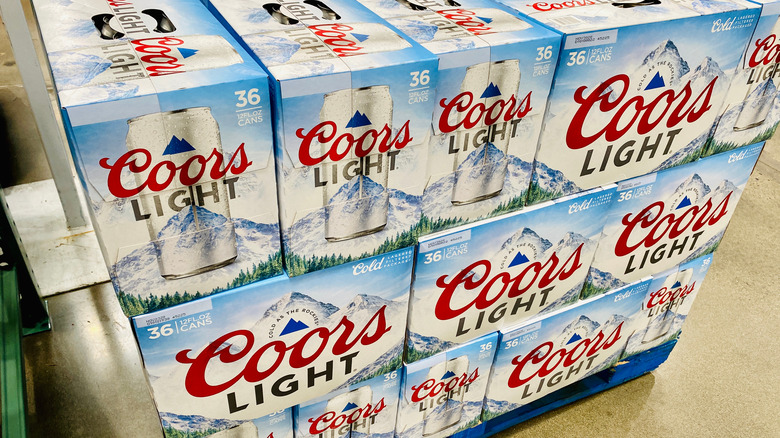The Coors Spring Water That Deserved To Fail
Owned and operated by Molson Coors beverage company, Coors Light has been intoxicating thirsty beer drinkers since 1978 (per Molson Coors). Manufacturing lake day essentials for over four decades, the beverage corporation distributes Miller Light, Olde English 800, Peroni, Redds, and many more (per Molson Coors). However, its most recognizable brew brand is Coors. In fact, Coors Light is one of the most popular light beers in America and is found on draft taps at restaurants and bars across the nation.
From Coors Light to Coors Banquet and others, Coors beers are all-American classics. Despite their tenured success, however, the Molson Coors company took innovation in the wrong direction in 1990 when it tried its hand at crafting artisanal sparkling water (per Time). Although sparkling water brands like La Croix have existed since 1981, Coors' attempt to join the sparkling water market was a certified flop.
Coors sparkling spring water was discontinued after less than a decade
Similar to La Croix, Coors sparkling water came in various flavors — original, lemon-lime, and cherry. Despite its potential, the company alienated customers by marketing the non-alcoholic beverage with the same logo and branding as Coors beer (per Daily Beast). If someone wants refreshing sparkling water to hydrate a hangover or to serve guests at a dinner party — chuggable Coors Light isn't exactly what comes to mind. According to Pivot, Coors kept the familiar logo on the sparkling water to reinforce its advertising initiative which claims it brewed Coors beers with Rocky Mountain spring water. Despite its best efforts, customers associated the logo with Coors beer, and the sparkling water never reached its full potential. Following years of poor sales, Molson Coors shut down its sparkling water operation in 1997.
While the beer company failed at launching crave-worthy sparkling spring water, Molson Coors is currently manufacturing successful spiked seltzer brands like Topo Chico Hard Seltzer and Vivvy Hard Seltzer. Only this time, they're keeping the individual brand logos intact for a better shot at dominating the fizzy drink market (per Molson Coors).

